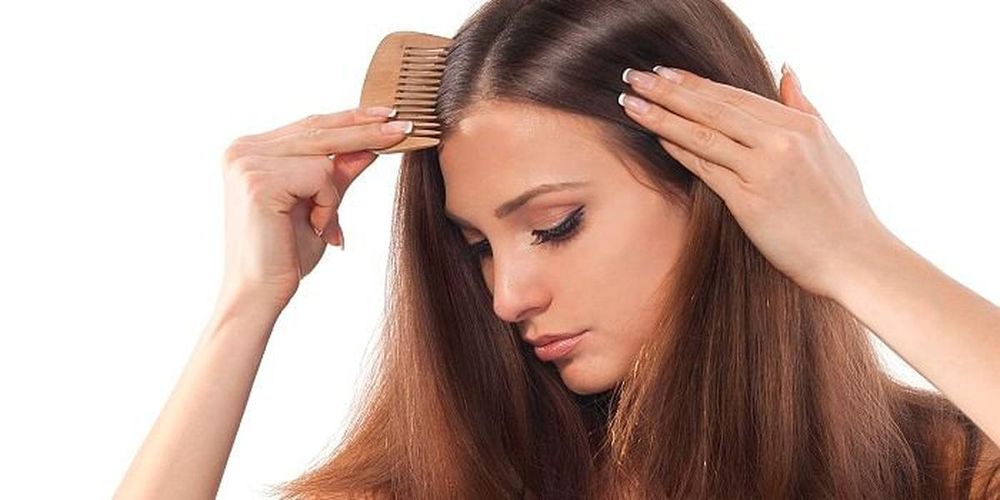
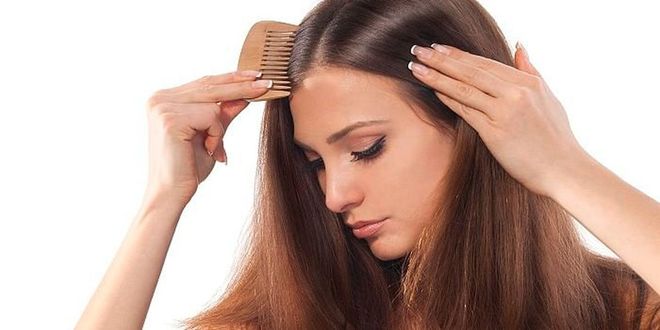
Photo: Getty
Hair
Discovering that you are starting to experience hair loss and/or thinning can be a worrying experience. We spoke to experts to pinpoint the main issues that could be behind it and to discover the best methods to avoid and counteract the problem.
1 Heat tools
According to Melanie Pellegrini, a John Frieda stylist, heat is one of the most prominent reasons why your hair might be falling out. Hot styling tools, such as your hairdryer, curling wand and straighteners, can make your hair dry, prone to breakage and consequently more likely to fall out. The Viviscal ambassador and celebrity stylist Neil Moodie explains why: "When too much strong, dry heat is applied to the hair it will weaken the hair shaft and, at its worst, it can burn the hair off."
Solution: Control the heat
"I highly recommend everyone uses heated hair tools that have a temperature gauge, so you can lower it." says Moodie, " This will cause less stress to the hair shaft." There are also specific accessories you can add to your tools, such as "The Power Styler's Ceramic Hairdryer attachment, £14.99. It cuts down the time it takes to blow-dry your hair, which therefore means heat is on it for less time," explains Roi Korach, the founder of the Power Styler.

Photo: Getty
Cara Delevingne
2 Over-dyeing
One of the most immediately obvious causes of hair loss is dyeing your hair too often. "When hair is overprocessed", explains Moodie, "it will generally snap off and break due to hair being damaged by the chemicals for too long. This causes the hair to completely lose its elasticity."
Solution: Take a break
If you frequently dye and style your hair, try taking a break from these habits for a month or so to see if they are the prominent cause of your hair loss. Pellegrini also recommends using "hair-conditioning treatments as well as heat protection to help gradually improve the condition of your tresses." You can find our favourite recommendations here.
Related article: 4 Easy Steps To Luscious Locks And Healthy Scalp
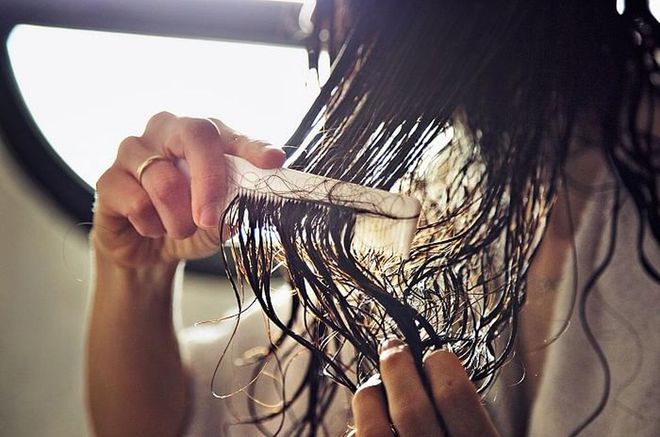
Photo: Getty
Hair
3 How often you brush your hair
"The most common mistake women make these days is that they don't brush their hair enough," Moodie reveals. "Hair has a lifespan of approximately seven years and on average we lose around 120 hairs a day to make way for new ones to grow. If you don't brush your hair then these hairs won't loosen out."
Solution: Get the right equipment
"Using a good brush", such as Hershesons' Mixed Bristle Brush, £34, "helps to stimulate the scalp, which encourages healthy hair growth," says Moodie, but exactly when you brush your hair is significant too. "Hair is most fragile when it's wet, so don't rip a brush through it" straight after showering, the stylist continues. "Instead, spray on some detangler, and then use a wide-tooth comb to minimise breakage" or try a Wet Brush, £11.99.
4 A change in season
"Both the summer and winter months can be really damaging to the hair," says Moodie, "and most of the problems are to do with hydration. Sun and water can be harmful, leading to faded colour, split ends and a brittle, dry texture. Hopping in and out of a chlorinated pool can strip colour and treatments right out of the hair and cause it to look dull and dehydrated.
"Research has also discovered that hair loss can be seasonal for some people. Around 10 per cent of a person's hair can go into a resting phase called Telogen, when hair can fall out. Women apparently experience slightly higher rates of Telogen during the month of July, which, in turn, sees the effect of hair falling out in mid-October or November."
Solution: Get a holiday trim
"It's always best to get a trim before summer," Moodie recommends. "The sun will do extra damage to hair that is already dry, so remove those dead ends. Spray some water on your hair before you go into the pool or ocean too, as it adds an extra layer of coating. This means, when you go swimming, your hair isn't as likely to absorb 100 per cent of the chlorinated water."
The suggestion to cut damaged hair is shared by Pellegrini: "Having regular trims will help your hair grow faster and healthier. When I say faster I mean, the longer you leave damaged hair without cutting, the more it will snap or break, so regular cuts can help keep your hair healthier and less prone to breakage."
Related article: 10 Easy Ways To Make Your Hair Grow Faster
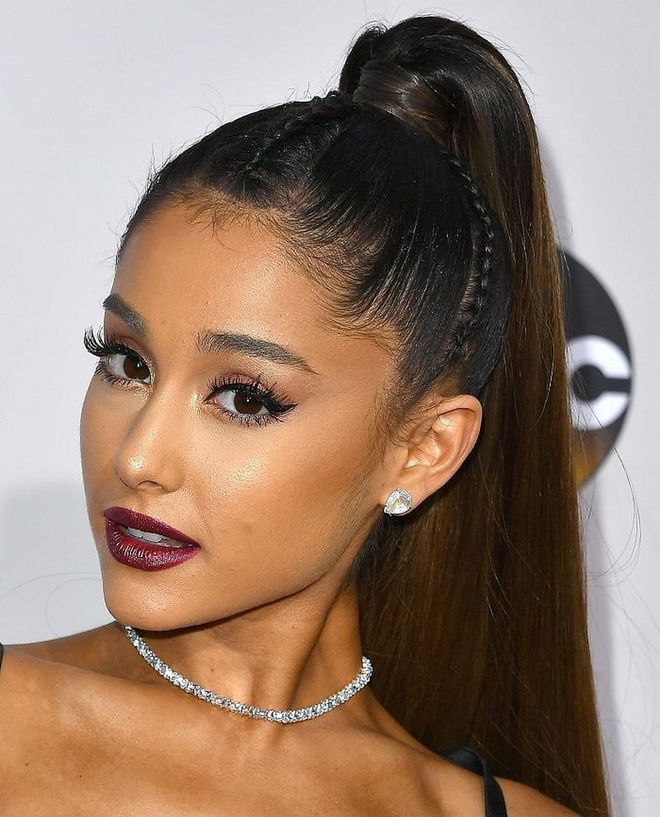
Photo: Getty
Ariana Grande
5 How you wear your hair
If you constantly tie your hair up, in a ponytail for example, you could be damaging your locks when tightly securing the band, while also making hair loss around your crown and temples more noticeable. Hair extensions also harm your hair in this way, often to a greater degree, as Moodie reveals: "Hair extensions can damage the hair follicle by constantly causing excess tension on the hair shaft. This can lead to traction alopecia [hair loss relating to pulling forces] that often leaves you with fine, fluffy hair, or very little hair at all."
Solution: Change your style
"In general, if you have finer hair, don't grow it too long", suggests Moodie. "The longer it gets, the weaker the hair gets and so it can tend to look lank, straggly and not healthy. Instead, focus on creating layers within shorter styles, to get a bit more height. I wouldn't recommend really short layers though because they can highlight the fineness of the hair. Instead, focus on getting root lift to make hair look thicker, using Windle & Moodie's Fortifying Spray, £18, directly to your roots."
According to Pellegrini, sometimes "less is more on fine hair. If you use lots of volume products it can really show how fine your hair is by lifting it up; it almost goes translucent. If you feel you've lost hair around your hairline, try changing your parting, or using Color Wow's Root Cover Up, £19, to fill it in. Then, opt for the Carb Cocktail, £15.79, to bulk your hair with minimal styling."
6 Lifestyle factors
Ironically, a traumatic situation such as hair loss is often triggered by times of stress – meaning the condition can keep you in a vicious circle. This is because trying circumstances raise the levels of cortisol, the so-called stress hormone that is responsible for your fight or flight response, which can distort your natural hair cycle of growth and loss.
Thinning hair can also be a sign of Vitamin D and B12 deficiency or a lack of protein in your diet. The latter is especially noteworthy as "the protein keratin provides the strength and structure of hair", explains Moodie.
Solution: Use supplements
"Changing your diet and having more iron and healthy supplements can help speed the process of growing your hair back," Pellegrini says, and Moodie agrees. "It's a well-known fact that fish oils are really good for our hair, so any omega-3-based oils are great. So are Viviscal's Maximum Strength Supplements, £199.90 for a six-month supply. I always notice much healthier hair growth after women take it, as well a slight increase in speed of hair growth and a reduction in shedding. It has allowed my clients to grow their hair to lengths they were unable to achieve."
Related article: 7 Things All Women With Lustrous Hair Do
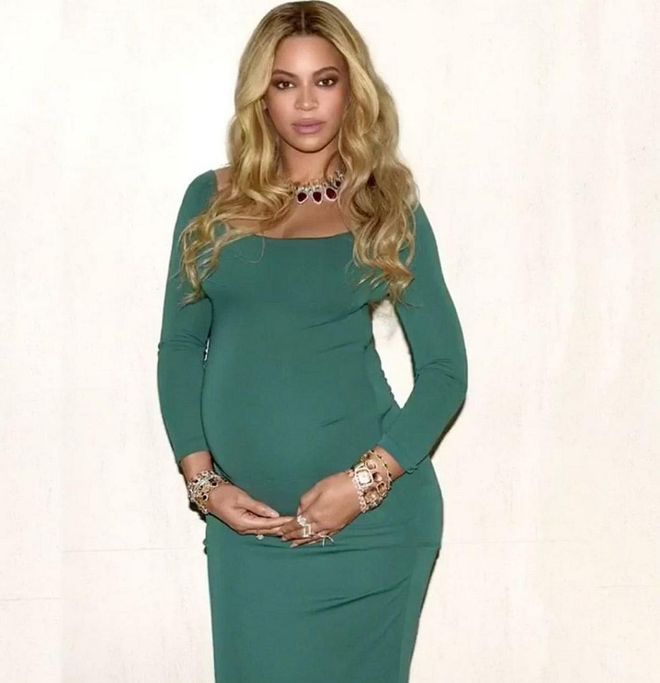
Photo: @beyonce
beyonce
7 Pregnancy and menopause
Hormone changes from pregnancy can not only play havoc with your skin, they also have an effect on your hair. When you are pregnant, the glow your skin seems to have is mirrored in how glossy and thick your hair tends to be. Unfortunately, post-pregnancy, it can feel like it is falling out at an unprecedented rate.
Menopause can affect your hair in a similar way. "With ageing, nearly everyone has some hair loss and the rate of hair growth slows," explains Moodie. "Hair strands become smaller, have less pigment and many hair follicles also stop producing new hairs. So the thick, coarse hair of a young adult eventually becomes thin, fine, light-coloured hair." This process is accelerated in perimenopausal women, where the consequent fall in female hormones – especially oestrogen that is important in promoting hair growth – coupled with the rise in testosterone can cause hair to thin and not regenerate.
Solution: Don't panic and talk to a doctor
It is crucial to understand that this supposed process of growth and loss is part illusion. Your hormones rise during pregnancy, affecting your hair growth cycle, and delaying shedding in the process. This means the hair you would naturally lose each day builds up, leading to seemingly thicker hair. When your hormones return to normal, your hair-loss cycle reboots, making you experience what seems like significant hair loss but is actually a build-up from the past nine months. Even when hair loss is more permanent, which is linked to ageing and the menopause, periods of accelerated hair loss during this time are likely to calm and become manageable as with the process' other symptoms.
If you are still concerned, though, Pellegrini advises you consult with your doctor for guidance. Not only can you discuss your general health and identify your stress and hormone levels, a doctor may be able to determine if a more serious condition – such as the autoimmune disorder alopecia – is to blame.
From: Harper's BAZAAR UK